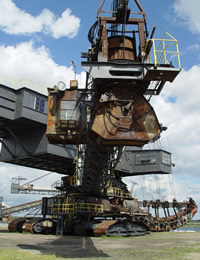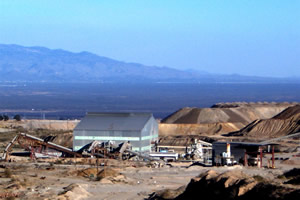United Nations Mission Advising the Dominican Republic on Renegotiation of Its Mining Contract with Falconbridge, Ltd.

In 1987 the Dominican Republic’s nickel mining contract with Falconbridge, Ltd. was in trouble. The 1970 contract that was supposed to yield over US$200 million in revenue had produced only US$5 million on nickel sales of over US$1 billion. The unexpectedly rapid rise in oil costs for the nickel refining process explained the shortfall, but didn’t solve the problem. The Dominican economy was failing, mining revenues had dwindled to nothing, the country’s nonrenewable ore – its patrimony – continued to leave its ports in foreign investors’ freighters, and the government felt it was the laughing stock of the developing world. The President, Joaquin Balaguer, imposed a 20% tax on exports and, when Falconbridge refused to pay, mining ground to a halt. Neither party could afford to abandon the relationship; neither one could afford to give in to the other.
The Dominican Republic called on the United Nations for help. PrimeMovers Managing Director Charles Barker served as negotiation advisor on the UN Mission led by Ricardo Gomez, an engineer with over 40 years of experience in the mining industry. Within the government negotiating team of cabinet ministers and expert advisors on economics, trade, finance, labor, tourism and mining, preparation for negotiation had become snared in legitimate but vastly differing points of view about their goals and strategies. Over a long critical weekend in December 1987, the UN Mission team led the government team through a Seven Elements preparation session examining the interests and communication patterns of all stakeholders, options for high value resolution, externally derived standards of fairness, approaches for developing a good working relationship and clear communication, the requirements for a sufficient agreement, and a plan of action if agreement was not possible.

Emerging from that weekend, the government team was aligned and ready to complete final preparations for negotiation. By May 1988, the government and Falconbridge had reached a new agreement. The over all result was that the government received US$123 million in additional taxes in that year and Falcondo, the operating company, made a record profit of US$88 million. The UN sponsor of the mission estimated that Charles Barker’s work enabled the government team to save at least US$1 billion over the life of the renegotiated contract.
For further information, see CEPMLP website (Center for Energy, Petroleum and Mineral Law and Policy) www.cepmlp.org; Volume 5-3a, Renegotiation and Contract Adaption in the International Investment Projects: Applicable Legal Principles & Industry Practices” by Thomas Waelde and Abba Kolo.
